As a result, the condition became more and more serious, her nose became dependent on the drug, accompanied by a runny nose, sneezing, and a loss of smell. When she went to the hospital for examination, she was diagnosed with drug-induced rhinitis and acute chronic sinusitis.
The patient is Ms. DTT (31 years old, living in Ho Chi Minh City). About a month ago, she had dengue fever. Although she was cured, she later experienced persistent nasal congestion on both sides. Instead of going to a specialist, she researched and ordered a vasoconstrictor spray online for use.
 |
| Illustration photo. |
At first, using the medicine helped her relieve nasal congestion. However, after a short time, she had to spray the medicine many times a day (3-4 times) to feel easier to breathe. Especially at night, if she did not use the spray, her nose would be completely blocked, making it impossible to sleep. Gradually, her sense of smell decreased, accompanied by a runny nose and prolonged sneezing.
Worried about her condition not improving, she went to MEDLATEC Go Vap General Clinic (part of MEDLATEC Healthcare System) for examination. Here, Dr. Tran Minh Dung, an ENT specialist, said that through clinical examination and questioning, the doctor suspected that the patient had sinusitis, so he ordered some more tests and in-depth investigations.
CT scan results showed maxillofacial polysinusitis, grade III according to Lund Mackay classification; nasal septum slightly deviated to the right. Endoscopy showed drug-induced rhinitis and acute exacerbation of chronic rhinosinusitis. Blood test also showed signs of mild infection.
Doctor Dung determined that the main cause of the patient's condition was the abuse of nasal decongestant sprays, a type of drug that should only be used for a maximum of 3 days according to medical recommendations.
When used for a long time, the nasal mucosa becomes "resistant" to the drug, leading to the phenomenon of "rebound congestion", meaning nasal congestion returns and is more severe than before, forcing the patient to continue using the drug to maintain ventilation, creating a vicious cycle of stuffy nose, spraying medicine, more stuffy nose, spraying medicine again.
After being properly diagnosed, Ms. T. was treated for an acute sinusitis episode, and a regimen of gradually reducing the dose of vasoconstrictors was applied instead of stopping abruptly, to limit the risk of severe nasal congestion recurring.
After 3 weeks of treatment, Ms. T.'s health condition has completely stabilized. Currently, she does not need to use any medicine but only needs to clean her nose daily with saline solution.
Doctor Tran Minh Dung warns that self-purchasing and using drugs, especially drugs with vasoconstrictor effects, is extremely dangerous without the guidance of a medical specialist.
Many cases initially only have mild nasal congestion but due to incorrect treatment, it turns into chronic rhinitis, even requiring surgical intervention. More dangerously, the use of drugs of unknown origin and uncontrolled ingredients can also cause poisoning, seriously affecting health and life.
People with symptoms such as stuffy nose, runny nose, sneezing, loss of smell, etc. should go to medical facilities with ENT specialists for timely examination and treatment, instead of self-treating at home or following unverified advice on the internet.
Source: https://baodautu.vn/gap-hoa-vi-tu-y-dieu-tri-benh-bang-thuoc-online-d389734.html


![[Photo] Prime Minister Pham Minh Chinh chairs the Government's online conference with localities](https://vphoto.vietnam.vn/thumb/1200x675/vietnam/resource/IMAGE/2025/10/5/264793cfb4404c63a701d235ff43e1bd)

![[Photo] Prime Minister Pham Minh Chinh launched a peak emulation campaign to achieve achievements in celebration of the 14th National Party Congress](https://vphoto.vietnam.vn/thumb/1200x675/vietnam/resource/IMAGE/2025/10/5/8869ec5cdbc740f58fbf2ae73f065076)



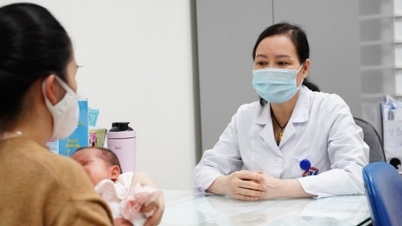
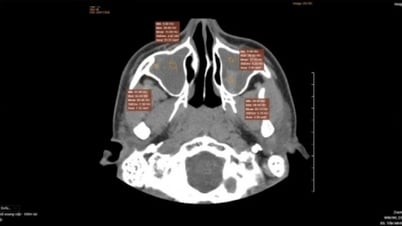

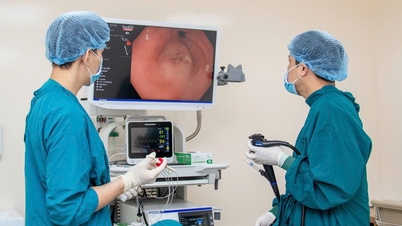

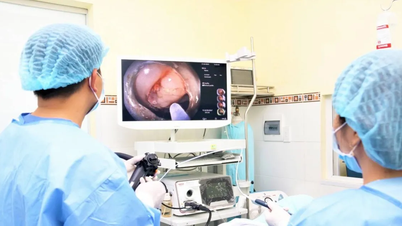

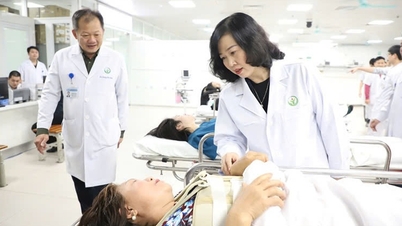

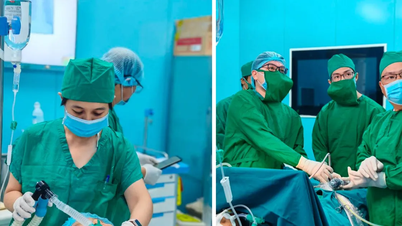
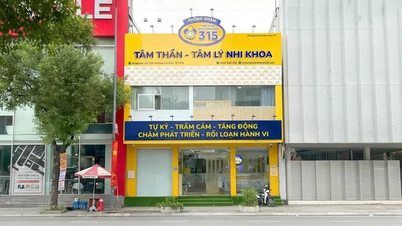



































![[VIDEO] Summary of Petrovietnam's 50th Anniversary Ceremony](https://vphoto.vietnam.vn/thumb/402x226/vietnam/resource/IMAGE/2025/10/4/abe133bdb8114793a16d4fe3e5bd0f12)

![[VIDEO] GENERAL SECRETARY TO LAM AWARDS PETROVIETNAM 8 GOLDEN WORDS: "PIONEER - EXCELLENT - SUSTAINABLE - GLOBAL"](https://vphoto.vietnam.vn/thumb/402x226/vietnam/resource/IMAGE/2025/7/23/c2fdb48863e846cfa9fb8e6ea9cf44e7)



































Comment (0)